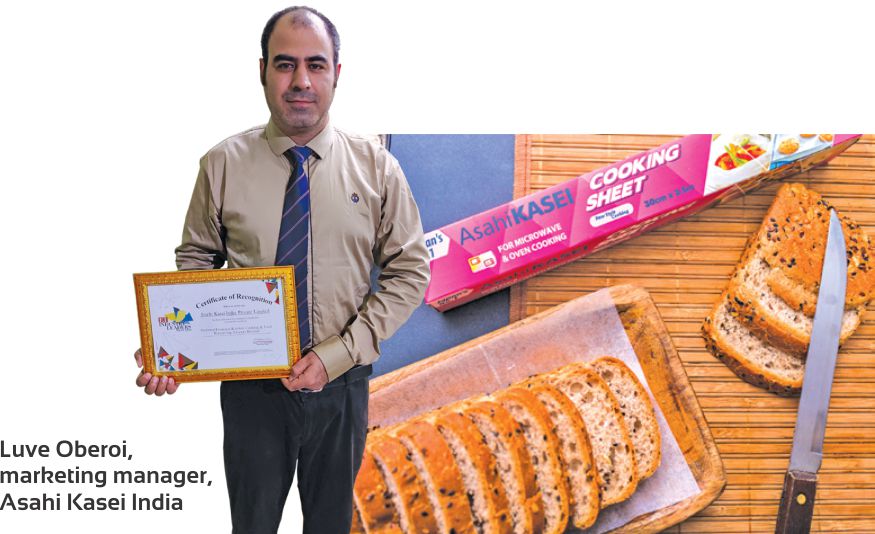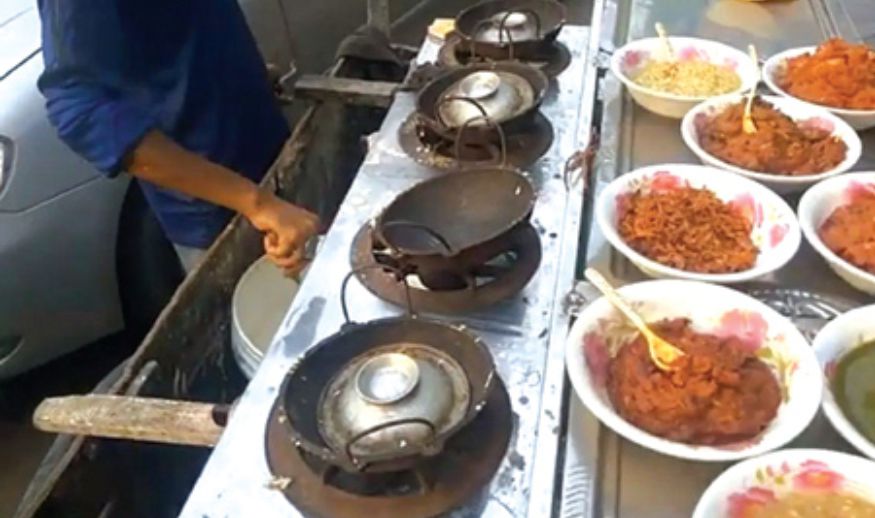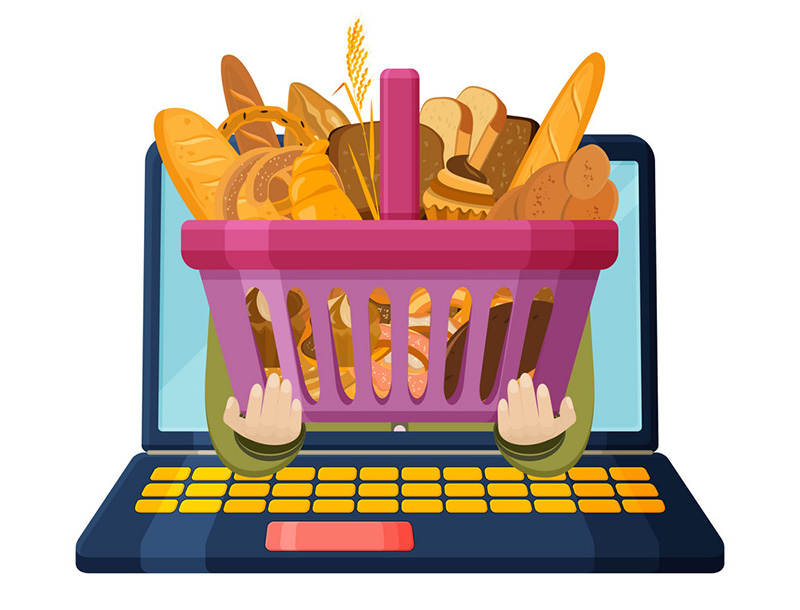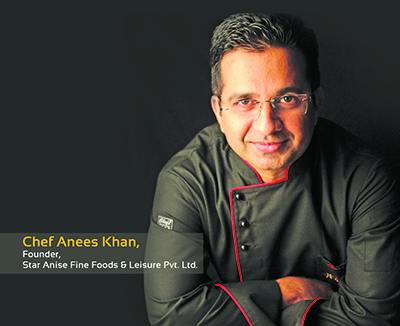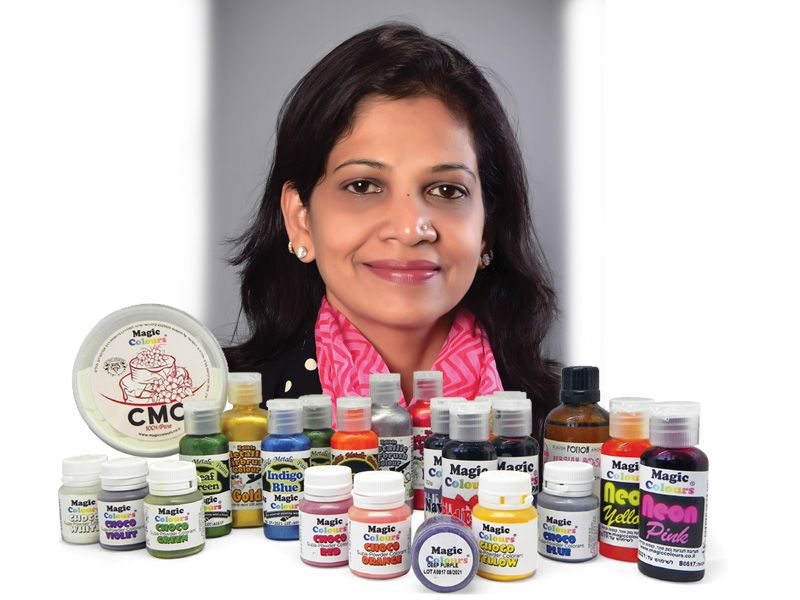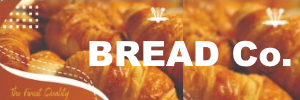Bakery Biz, January-February, 2022
Bringing the real chocolate business to the forefront
Choconomics, a half-day session on Chocolate Sensory Training, Chocolate Tasting, Chocolate Economic Sharing, Importance of Marketing and Branding was held on 18th February 2022 at the Conrad by Hilton in Pune. Limited to an audience of 30 people, this by invitation only event, was presented by BakeryBiz Connect – The Knowledge Platform, organised by BakeryBiz and conducted by Cacao Solutions.

The event was attended by leading chocolate industry members, bakers and chocolatiers from Pune and Mumbai besides bloggers and journalists. The format of the educative event was such that the participants actively participated and got enlightened with the latest in the chocolate industry and cleared out myths revolving around chocolate, its production and consumption.
With a vision to upgrade the Indian chocolate market, Mandar Bhosle from Cocoa Solutions took the centre stage and introduced the audience to the world of chocolates by giving them a snapshot of the industry scenario. The session started with an introduction to the history of chocolates, their origin, initial value, transfer to European countries and their development from inception to date.
Participants were informed about the chocolate growing regions across the world and introduced to various kinds of beans, their farming and harvesting, and made to understand various origins and their differences.
 A sensory training involving smelling various ingredients in order to prepare for understanding and associating flavour notes was conducted by offering various kinds of flavours to the attendees. Mandar introduced the participants to various kinds of chocolates which were offered for tasting and understanding taste profiles and flavour notes. The session included tasting coco beans, coco butter, coco powder, dark, milk and white chocolates of different types ranging from forty-five per cent to ninety per cent of cocoa. Information was provided about the different origins of chocolate and about chocolate medication.
A sensory training involving smelling various ingredients in order to prepare for understanding and associating flavour notes was conducted by offering various kinds of flavours to the attendees. Mandar introduced the participants to various kinds of chocolates which were offered for tasting and understanding taste profiles and flavour notes. The session included tasting coco beans, coco butter, coco powder, dark, milk and white chocolates of different types ranging from forty-five per cent to ninety per cent of cocoa. Information was provided about the different origins of chocolate and about chocolate medication.
 From fruity, to herbal/spicy, to vegetal to dark/sweet – all kinds of chocolates were discussed and touched upon. How the chocolate is made, the entire process, including inspection of the pod and tasting of thee beans which was specially brought in from the Cacobean Chocolate Factory in Cochin by Chef Rajeev Upadhyay, the Corporate Chef for the organisation having production facilities in Kerala.
From fruity, to herbal/spicy, to vegetal to dark/sweet – all kinds of chocolates were discussed and touched upon. How the chocolate is made, the entire process, including inspection of the pod and tasting of thee beans which was specially brought in from the Cacobean Chocolate Factory in Cochin by Chef Rajeev Upadhyay, the Corporate Chef for the organisation having production facilities in Kerala.
The session moved into the more serious aspect of bakery and chocolate economics. With a highlight of the overall chocolate market in India, cocoa production and sourcing, knowing various manufacturers, understanding pricing, understanding possibilities in chocolate production; the session led up to strategies and techniques for an increase in sales, cross-selling and upselling.
The session was an ideal platform for the attendees as it gave them an opportunity to gain an overview of the chocolate world, interact with bakers at one platform, meet with potential chocolate manufacturers, and establish new collaborations and form business strategies.
The focus on making the choice between compound and pure chocolate and giving the end customer a choice for selecting the best product for their customers was well appreciated by one and all. The price differential due to the use of pure chocolate, which was a concern of some of the bakers, was effectively explained and the benefits were highlighted, outshining the marginal extra price paid for the pure chocolate.
 Aditya S Pawar from The Daily Baker, operating 60 outlets across Mumbai and Pune said, “I am thankful to the organisers for giving us this opportunity to learn about chocolates. We, being in the business, never thought about it in the way it has been shown to us here today. The same will be helpful to us, for developing our brand value as well as help us in establishing the new segment that we are trying to get into.”
Aditya S Pawar from The Daily Baker, operating 60 outlets across Mumbai and Pune said, “I am thankful to the organisers for giving us this opportunity to learn about chocolates. We, being in the business, never thought about it in the way it has been shown to us here today. The same will be helpful to us, for developing our brand value as well as help us in establishing the new segment that we are trying to get into.”
_________________________________________________________________________________________________________________________________________________________________________________________
The special event was attended by some of the leading bakers and invited organisations having their presence in Pune. Some of them were :
- Chitale Bandhu, a popular brand from Pune with a pan- India presence and a legacy of its own, was represented by its fourth-generation partner Nikhil Chitale.
- Pune’s popular bakery brand Baker’s Basket which was set up in 1985 and currently operates 16 outlets across the city, represented by their Corporate Chef Imrankhan Bargir.
- Abhishek Shah founder of Ditch The Guilt, a one of its kind brand which has become a hot favourite amongst celebrities in Mumbai and Pune.
- Nestle Professionals was represented by their senior area sales manager Mahesh Devrukhikar.
- Golden Bakers, a century old bakery in the city of Pune, represented by their young fourth generation brothers. Nihaal Ansari and Kamal Ansari.
- ISR Samruddhi Foods, owners of Pune’s fast growing bakery chain Caramella, represented by Geta Shinde their General Manager for Purchases.
- The Daily Baker, headquartered in Mumbai with over 60 operational bakeries in Mumbai and Pune and plans for substantial growth, represented by the founder Aditya S Pawar.
- Briju’s Patisserie’s Briju Parthsarathy, a specially curated pure chocolate expert
- Rohan Shah representing Soham Products, under the brand name Theocor.
- DP Chocolates (2m) of Hyderabad represented by their Business Development Manager, Ankit Sinha.
- Gladvin Rego, Principal of Lexicon Institute of Hotel Management.
- Cacobean Chocolatier, represented by their Corporate Chef, Rajeev Upadhyay.
- Prodyut Biotech represented by Vanita.
Chocolate Timeline in India
- Mondelez came to India in 1948, that was the first chocolate company in India.
- Mondelez initiated cacao plantation India in 1960’s before that they imported coco and further processed it in India.
- In 1983 – Morde was established providing a chocolate substitute – naming it as compound, commonly called as compound chocolate. Morde also produces chocolates, however their popular product was and is compounds.
- In 1986 Campco was established which is govt subsidised and supporting Indian cacao farmers.
- Later in 2007 – Callebaut came to India setting up its plans at Ranjangao, near Pune.
- Also, DP Chocolates (2M) was established in the year 2007.
- Now in the last 3-5 years, lots of Bean to Bar companies have started emerging
Chocolate Market Size
- B to B – Organized market (Compound and Chocolates) comprises around 4 billion dollar – Morde, Campco, DP Chocolates, Barry Callebaut, Puratos are the major players. Morde has more than 50 percent of the market share, also much of the market is disorganized.
- B to C – Market is around 4-6 billion dollars – Mondelez, Nestle, Mars, Amul are the major players.
- Chocolate market has been growing consistently.
- India consumes over 1.4 lac tons of coco products annually.
Chocolate Manufacturers
- There are manufactures who produce both compounds as well as chocolates. Many companies have closed in the last few years.
- Morde, 2M, Campco, Puratros, Jindal, Lotus, Dukes, Chocoville, Amul, Goodrich, Mello, Bunge, Cargill, Desire, Marco, Zelos, Vanleer, Pure Tempation, Food Cast – ARIA, Winola. Fristee, Goldsmith, Swisspride, Colate, Delexio, Le Bourne, Cacaobean, Roma, Schoco, Chirag Compounds, Vollkys, SPF Compounds.
- It is worth noting that many of the companies here are either closed now or have stopped producing chocolate products due to extreme competition and most of them are making compounds as their major product.
- Some of the new age companies who cater to B2B as well as B2C market in bean to bar chocolates are – All things Chocolates, Naviluna, Mason & Co, Cacao Bean, Ditch the Guilt, Chocolate & Me, Chocoa, Annutam Chocolates.
Why Choconomics?
Mandhar Bhosale | Director, Cacao Solutions
 During the year 2016-17, when I entered the chocolate industry, I used to extensively travel to different cities for sales and that was the time that I realised that the entire country has been eating compound in the name of chocolate. India knows chocolate to be a sweet product. Here chocolate is a category and not a product. In the Tier 2 and 3 cities, some of the coco products standards were too low, far from being healthy or tasty. Even in Tier 1 cities, there is lack of pure chocolate products and even people who have been in the industry for many years do not know the basic difference between compound and chocolate.
During the year 2016-17, when I entered the chocolate industry, I used to extensively travel to different cities for sales and that was the time that I realised that the entire country has been eating compound in the name of chocolate. India knows chocolate to be a sweet product. Here chocolate is a category and not a product. In the Tier 2 and 3 cities, some of the coco products standards were too low, far from being healthy or tasty. Even in Tier 1 cities, there is lack of pure chocolate products and even people who have been in the industry for many years do not know the basic difference between compound and chocolate.
The misinformation stemmed from the roots. The educational institutions also taught or practised compounds as chocolates, hence adoption of compound products was at a large scale and people were oblivious to the fact that they have not been eating chocolates all their life.
Also, the bakery and chocolate industry has become extremely competitive where most of the bakers make similar products with similar ingredients and even sale at similar price. As bakeries increased and the prices were going down, even profits were down, these resulted in low cost purchasing in raw materials which further lead to low quality products manufacturing by chocolate factories.
Many compound manufacturing companies faced this issue.
The only viable solution for this is to upgrade the market, make good products, increase the spending power of the consumer by providing them with quality products which are healthier and tastier. This is the only way for the industry to survive better and keep innovation as their core.
Hence in order to convey this knowledge, the idea of chocolate tasting events with professionals was born. Once the professionals are educated, they work on Innovation and make better products, and increase their economy as well as that of the country.
As thing stabilise, this will also help in increasing cacao farming in India.
Also, it is extremely difficult for small scale companies with good product to have proper market reach, because they lack funds, connections, reach, strategies. Hence, Choconomics helps in connecting manufacturers with leaner clients as well.
It is very painful to see kids eating compounds which are not healthy, we look for a time when every kid knows the difference between compounds and chocolate and consumer gets fair opportunity to choose what he wants to eat rather than be misinformed.
To end this, I would like to make a very important point, here the objective is not to demean compound manufacturers because we understand India is a developing country, supply chain, storage, transport has been a challenge. However, now with time, the industry has evolved and it is the right time for the people to start shifting to pure chocolates.
It is beneficial for all stake holders, including farmers and consumers, and the country.
The Chocolate Transformation
Pradeep Gopalan | Editor -Bakery Biz
 We, at Hospitality First were early market readers and trend trackers of the Indian bakery industry. Way back in 2005, when the bakery industry was considered a subset of the hospitality and foodservice sector, we realised, this sector similar to how the restaurant industry which progressed by moving out from the umbrella of the hotel industry, was being stifled from gaining recognition and growth for similar reasons.
We, at Hospitality First were early market readers and trend trackers of the Indian bakery industry. Way back in 2005, when the bakery industry was considered a subset of the hospitality and foodservice sector, we realised, this sector similar to how the restaurant industry which progressed by moving out from the umbrella of the hotel industry, was being stifled from gaining recognition and growth for similar reasons.
Having established a modest platform through BAKERY BUSINESS, an annual trade fair in 2006, the show today has emerged as the national forum for bakery equipment and technology seekers, tracking trends of innovative ingredients and the chocolate sector. In short it has played a big role in transforming the Indian bakery industry, beating consumer perception and exciting investor interest by bringing it under the spotlight.
We see something similar trending with the cocoa sector, actually chocolate industry. We, in recent years have seen an increase in growth of compound chocolate manufacturers, at the same time a trend emerged of young artisan chocolatiers, bean to bar models, artisan bakers and patissiers who were comfortable and preferred to play with pure chocolate. This sector conversion from compound to pure chocolate (couverture), in the coming times, holds a lot of promise for many reasons – health, “true to customer” ethics against consumer ignorance and a social and moral responsibility of educating the consumer. We believe the cocoa industry is at that stage, where its needs to find its own space the way bakeries and restaurants did.
Our studied response to that; We have established “Choconomics”, a business platform to educate the industry about the long-term benefits, ROI economics of promoting pure chocolate among the masses in the coming future while networking with true knowledge seekers. Who best than the purveyors of “what is good for you and the soul” can play a lead role in transforming the chocolate industry. This maiden event in Pune met with extremely good success with top standalone and bakery chain influencers in attendance. Banking on this positive feedback, Choconomics will now move to Mumbai, Goa and Ahmedabad in the coming months.
Join us next for an enjoyable and enriching chocolatey business experience!.
_________________________________________________________________________________________________________________________________________________________________________________________
 “The event gave us very nice information about real chocolate, compared to compound chocolates. Lot of people from the industry who are using compound are not aware what real chocolate is. As the industry is growing at such a large scale, such kind of knowledge sharing was imperative. The event has also been very helpful in networking with all the leading bakers from across Pune, as well as industry people from Kerala and Mumbai. We hope this kind of networking and knowledge sharing keeps on continuing,” said Rohan Shah representing Theocor.
“The event gave us very nice information about real chocolate, compared to compound chocolates. Lot of people from the industry who are using compound are not aware what real chocolate is. As the industry is growing at such a large scale, such kind of knowledge sharing was imperative. The event has also been very helpful in networking with all the leading bakers from across Pune, as well as industry people from Kerala and Mumbai. We hope this kind of networking and knowledge sharing keeps on continuing,” said Rohan Shah representing Theocor.
_________________________________________________________________________________________________________________________________________________________________________________________
 Chef Imrankhan Bargir, representing Baker’s Basket said, “I am glad that this event is happening here and I have got an opportunity to be a part of it. Apart from networking, the event has helped me understand how the chocolate processing unit and its business works in Pune and in India.”
Chef Imrankhan Bargir, representing Baker’s Basket said, “I am glad that this event is happening here and I have got an opportunity to be a part of it. Apart from networking, the event has helped me understand how the chocolate processing unit and its business works in Pune and in India.”
_________________________________________________________________________________________________________________________________________________________________________________________
 “Sessions like these give us an in-depth knowledge about what chocolate exactly is and it helps me convey to my followers as to what they should really have,” said Surya Sharma, a Punebased entrepreneur and social media influencer.
“Sessions like these give us an in-depth knowledge about what chocolate exactly is and it helps me convey to my followers as to what they should really have,” said Surya Sharma, a Punebased entrepreneur and social media influencer.
_________________________________________________________________________________________________________________________________________________________________________________________
Chocolate as per the FSSAI norms
Chocolate means a homogeneous product obtained by an adequate process of manufacture from a mixture of one or more of the ingredients, namely, cocoa materials including cocoa beans, cocoa nib, cocoa mass (cocoa liquor/cocoa paste), cocoa press cake and cocoa powder (cocoa fines or cocoa dust), including fat reduced cocoa powder with or without addition of vegetable fats other than cocoa butter shall not exceed 5 per cent of the finished product, after deduction of the total weight of any other added edible foodstuffs, without reducing the minimum contents of cocoa materials.
Besides other laid down aspects, chocolates shall also conform to the following standards namely:




